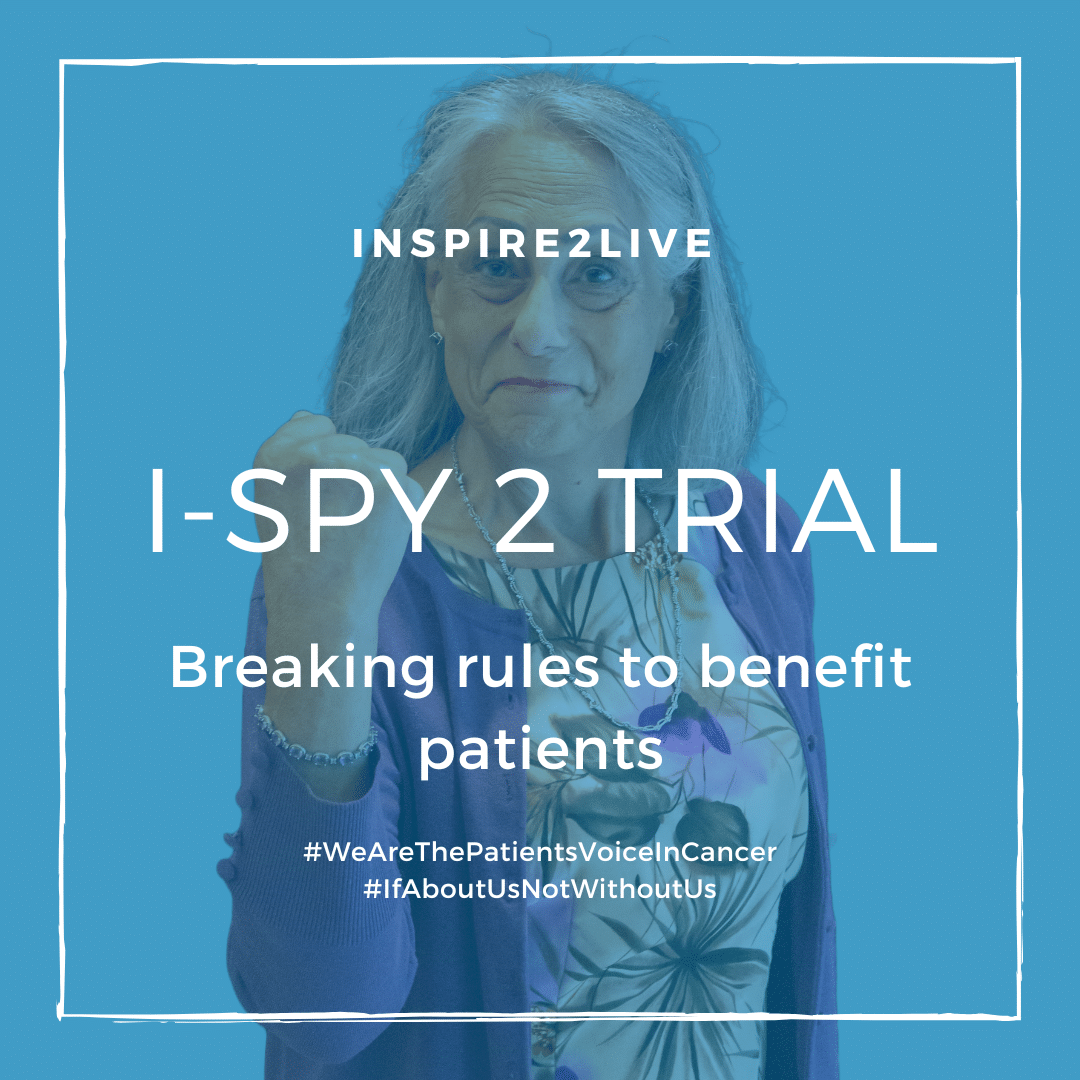Breaking rules to benefit patients
At Inspire2Live we all share the belief that some rules will need to be broken if we are to make progress and save lives. That’s also why I value my research advocacy work supporting the I-SPY clinical trial in the US. The trial has always been driven by the mantra “We can do better for our patients.” The I-SPY researchers and advocates who work together aren’t afraid to ask tough questions and then break some rules to answer them – for the benefit of the patient.
I-SPY 2 is an innovative phase 2 randomised trial for patients with early-stage breast cancer who have a high risk of their cancer recurring. Running for more than a decade, the trial shifted paradigms in research as one of the earliest platform trials. That means that it tests multiple experimental agents simultaneously. They are dropped or added as enough information is gathered to assess their efficacy and safety against a common control treatment. This saves resources and speeds the progress of getting successful drugs to the clinic to treat patients.
The I-SPY 2 trial has already tested more than 20 investigational drugs and more than a dozen of them were shown to be more beneficial for patients than standard therapy. One of the drug candidates tested was pembrolizumab or Keytruda®. A large follow-up phase 2 neoadjuvant study then confirmed I-SPY’s results that this drug is among the most effective treatments currently available for patients with triple negative breast cancer.
I-SPY broke more rules by being a response adaptive trial. This means that it continually learns from each patient so it can zero in on patients for whom a drug is the most appropriate. With adaptive randomisation, patients who join the trial have a higher likelihood of receiving a drug that has the greatest chance of eliminating their tumour because the trial has learned from previous patients.
Fifteen years ago, when the trial was planned, it was almost unheard of for patients to receive neoadjuvant therapy i.e. drug treatment before surgery vs after surgery. But this enables measurement of the drug’s effect on the tumour so exposure to treatments that are not effective for a patient can be stopped, reducing treatment toxicity and side effects. It also offers the possibility of less extensive surgery if the tumour shrinks, and it’s proven as safe as having surgery first.
It was very controversial to test drug candidates in early-stage, high risk of recurrence patients, versus patients with metastasis. But it turns out it’s much easier to achieve pathological complete response (pCR) for these patients and that, it turns out, is the best indicator that they will not develop metastasis in the future.
These are just a few of the many “rule breaking” trial design features that support the overall goals of the I-SPY 2 trial which are to personalise patient care, achieve pCR in the greatest number of patients, minimise toxicity and maximise quality of life.
Please visit ispypatient.org and ispytrials.org to learn more about this ground breaking trial.
Diane Heditsian
Patient Advocate Inspire2Live

